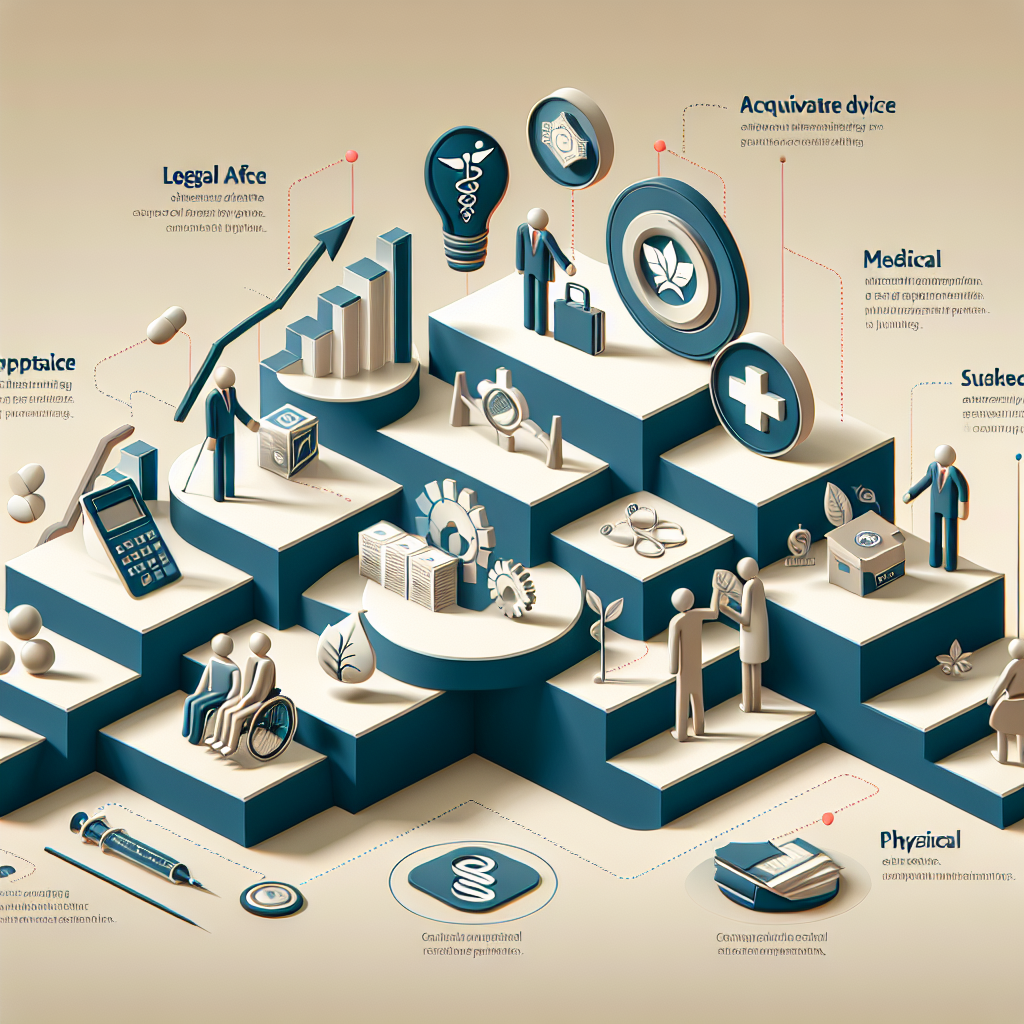Understanding the concept of personal injury is crucial when it comes to navigating its aftermath. It generally involves any damage to an individual’s body, mind, or emotions, most often caused by the negligence or careless behavior of someone else.
Common Types of Personal Injury
Personal injuries can occur in a wide array of situations, but there are some types that are more common than others. These include:
- Vehicle accidents: Car, truck, motorcycle, and bicycle accidents can result in severe personal injuries due to high-speed impacts, road hazards, drunk driving, and driver negligence.
- Medical malpractice: This happens when a healthcare provider delivers substandard treatment that causes harm to the patient.
- Slip and fall cases: These commonly occur on properties where there are unsafe conditions, causing individuals to slip, trip, or fall.
- Work-related injuries: These injuries occur in the workplace setting, often due to hazardous conditions or use of heavy machinery.
Major Causes of Personal Injuries
The causes of personal injuries can be as varied as the types of injuries themselves. However, they often include:
- Negligence: This is the most common cause of personal injuries, where one party’s failure to exercise reasonable care leads to another person’s injury. Examples of negligence include distracted driving, a store owner not clearing ice from a walkway, among others.
- Intentional misconduct: These personal injuries are the result of one person intentionally causing harm to another. Assaults and other acts of violence fall under this category.
- Strict liability: This applies mostly in product liability cases where a manufacturer is held responsible for an injury caused by their product, even if there was no negligence or intentional wrongdoing involved.
Impacts of Personal Injury
Personal injuries can cause not just physical pain, but also mental anguish and financial hardship. They can lead to loss of earning capacity, substantial medical bills, and significant disruption to your life. Understanding the types and causes can help you prevent future injuries and prepare for potential legal proceedings post injury.
Immediate Steps to Follow Post Personal Injury
Securing Medical Assistance
The first step after experiencing a personal injury is to get medical help. No matter how minor your injury may seem initially, it’s crucial not to underestimate its potential severity. Immediate medical attention can not only protect your health, but provide essential documentation that can be beneficial in any future legal proceedings.
Gathering Essential Information
Once your immediate health concerns are addressed, the next step is to gather as much information as possible. If you’re physically able, try to document the scene where the incident occurred. Note down important details and take photos of both your injuries and any environmental factors that might have contributed to the event. Also remember to collect names and contacts of anyone who witnessed the incident.
Contacting Legal Representation
Contact a personal injury lawyer as soon as possible after your accident. The sooner you seek legal advice, the better your chances of receiving full compensation for your injury. A lawyer will direct you on the right actions to take, help you understand your legal rights and guide you through the paperwork that needs to be filled for your insurance claim or lawsuit.
Collecting Evidence and Documenting the Injury
Getting the Necessary Proof for Your Injury
The initial step to getting compensation for your injury is to collect as much evidence as possible related to the incident. This could include photographs of the accident scene, your injuries, and any property damage. Further, if there were any witnesses to the incident, get their names and contact details. They might provide crucial statements that could boost your personal injury claim.
Medical Records and Documentation
Promptly seek medical attention after the incident. It’s essential not only for your well-being but also it forms a vital piece of evidence. The medical records from your doctor or hospital visits will document the extent of your injuries, the treatment you received, and the potential future impact on your health. Be sure to secure copies of all your medical reports, bills, prescription details, therapy records, and any other documents that can prove your medical expenses.
Keeping Track of Your Recovery Process
Maintaining a personal injury diary could be useful as it gives a day-to-day account of your struggles, pain, and inconvenience caused due to the injury. Track your physical symptoms, emotional well-being, and any disruptions to your daily routine. This helps in establishing the impact of the injury on your life and could significantly influence the calculation of non-economic damages like pain and suffering.
Remember that compiling a comprehensive collection of evidence requires time and diligence but is worth it for the vital role they play in substantiating your personal injury claim.
Seeking Medical Attention: The Role of Medical Reports
Importance of Immediate Healthcare Evaluation
Receiving immediate medical attention following a personal injury is not only vital for your health, but also plays an instrumental role for potential legal actions. Your healthcare provider can accurately document the condition you are in post-injury. This documentation can be pivotal when determining the severity and impact of your injury.
Creating a Detailed Medical Record
A medical report holds significant value as it creates a comprehensive record of your physical state after the injury. It provides factual evidence of the injuries sustained and treatments administered, leaving no space for speculation or misinformation. A detailed medical report includes information on the extent of the injury, the exact cause, prescribed treatment plan, and how it may affect your future health or lifestyle.
Leveraging Medical Reports in Legal Scenarios
In the event of a personal injury claim or lawsuit, medical reports become critical pieces of evidence to support your case. These reports can strongly influence negotiations with insurance companies, potentially leading to a settlement that covers your medical bills, lost wages, and other associated costs. Furthermore, if your case proceeds to court, a detailed medical report can provide the judge or jury with factual evidence about your injury and its impact on your life. Without these medical reports, it may be difficult to prove the degree of harm suffered or the need for compensation.
Legal Assistance: Hiring a Personal Injury Attorney
Understanding the Need for a Personal Injury Attorney
A personal injury attorney is an essential ally in your journey towards financial justice after an accident that wasn’t your fault. Injuries often result in substantial medical bills, loss of wages, and other expenses which can drastically affect your financial health. By seeking legal support from a trained professional, you can navigate the complex legal system with peace of mind and maximise the compensation owed to you.
Selecting the Right Personal Injury Attorney
Choosing the right personal injury attorney requires due diligence. Start by seeking referrals from friends, family, or other attorneys. Once you have a shortlist, verify their credentials, experience, and reputation in handling cases similar to yours. Schedule a consultation to understand their approach towards your case, assess their communication skills, and determine whether you’re comfortable with them representing you.
Remember, you should never feel pressured into hiring an attorney if you’re not satisfied with their knowledge, expertise, or demeanor during the consultation. Also, consider their fee structure. Some attorneys charge an hourly rate, while others operate on a contingency basis, meaning they get paid only when you win the case. Make sure you fully understand their billing structure and are comfortable with it before hiring.
Working with Your Personal Injury Attorney
Once you’ve hired a personal injury attorney, it’s critical to establish a clear line of communication. Provide all necessary documentation related to your incident such as medical records, police reports, photographs, and any witness testimonies. Be honest and upfront about all aspects of your case to help your attorney build a strong case.
Furthermore, heed your lawyer’s advice – their experience and knowledge of the legal landscape will help guide your decisions. Be patient, as personal injury cases may take time to reach a resolution. Remember, your attorney’s primary goal is to secure the best possible outcome for you.



